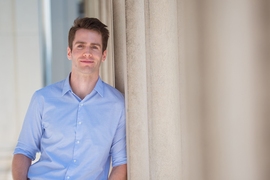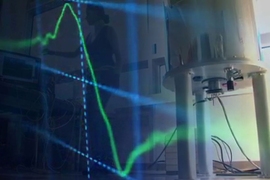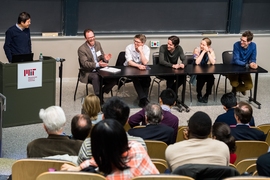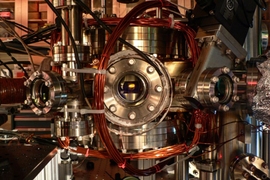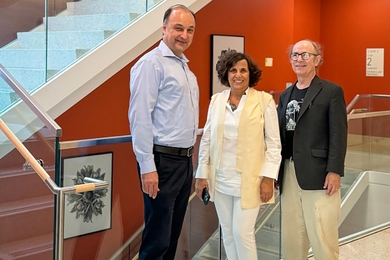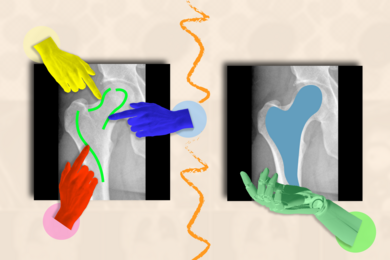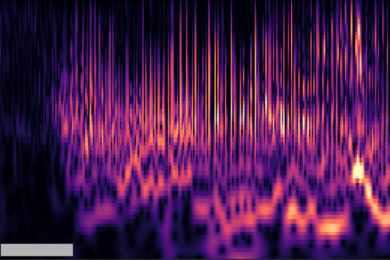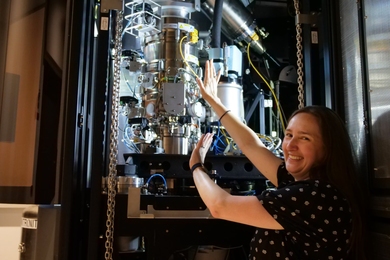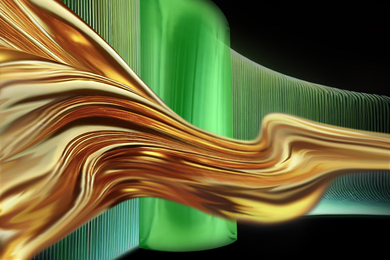Center for Theoretical Physics professors Daniel Harlow, Aram Harrow, Hong Liu and Jesse Thaler have been named recipients of research awards in the U.S. Department of Energy’s new program in Quantum Information Science (QIS).
The awards were made in conjunction with the White House Summit on Advancing American Leadership in QIS, highlighting the high priority that the current administration places on advancing this multidisciplinary area of research, which is expected to lay the foundation for the next generation of computing and information processing as well as an array of other innovative technologies.
The awards honor scientists at 28 institutions of higher learning across the nation and nine Department of Energy national laboratories. They cover a range of topics from developing hardware and software for a new generation of quantum computers, to the synthesis and characterization of new materials with special quantum properties, to probing the ways in which quantum computing and information processing provide insights into such cosmic phenomena as dark matter and black holes.
Harlow, Harrow, Liu, and Thaler, who are all researchers in the Laboratory for Nuclear Science and professors in the Department of Physics, are principles on two separate projects.
The first project, directed by Harlow, Harrow and Liu, will study connections between algebraic quantum field theory, holographic quantum codes, and approximate Markov states. These subjects have all been of much recent interest: The algebraic approach to quantum field theory has recently been used to prove remarkable general results such as the quantum null energy condition, and holographic quantum codes have given us a new perspective on classic problems in quantum gravity.
In both cases the technical tools which lead to the new results can be understood as using the special properties of quantum Markov states — states that saturate strong sub-additivity. These states are also of interest in quantum computing, with applications to quantum error-correction, efficient preparation of Gibbs states on quantum computers, efficient compression with side information, and many other areas. The project will combine these three issues, seeking to systematically understand the connections between them, seeking new insights about quantum field theory, quantum gravity, and quantum information.
“In recent years tools from quantum information theory have been very useful in studying the deep problems of quantum gravity, and I'm glad that the Department of Energy has recognized this,” Harlow says. “Hopefully continuing research in this direction will lead to additional insights, both about the fundamental structure of the universe and about what to do with quantum computers once we have them.”
In the second award, professors Harrow and Thaler were recognized for seeking to unite powerful analysis techniques in high energy physics with cutting-edge advances in quantum computation. Thaler’s research is aimed at discovering new physics at the Large Hadron Collider (LHC) and Harrow’s is directed at unlocking the capabilities of quantum computers. Through this innovative work at the interface of high-energy physics and quantum information science, the investigators aim to maximize the discovery potential of the LHC and future colliders by demonstrating how quantum algorithms can expose important features in collision events that would otherwise be intractable with classical methods.
By exploiting the capabilities of quantum computation, this research confronts the challenge of data analysis in collider physics and may pave the way for future applications of quantum machine learning beyond high energy physics, in particular clustering problems in other application domains.
“I'm excited to collaborate with experts in quantum information science,” says Thaler, speaking on the possibilities of the project. “While quantum mechanics is at the heart of particle physics, we currently rely on classical algorithms to analyze particle data. Quantum algorithms could enable discoveries at the LHC that would simply be intractable using classical methods.”
The work is funded by three programs in the Department of Energy's Office of Science: Advanced Scientific Computing Research, Basic Energy Sciences, and High Energy Physics.

